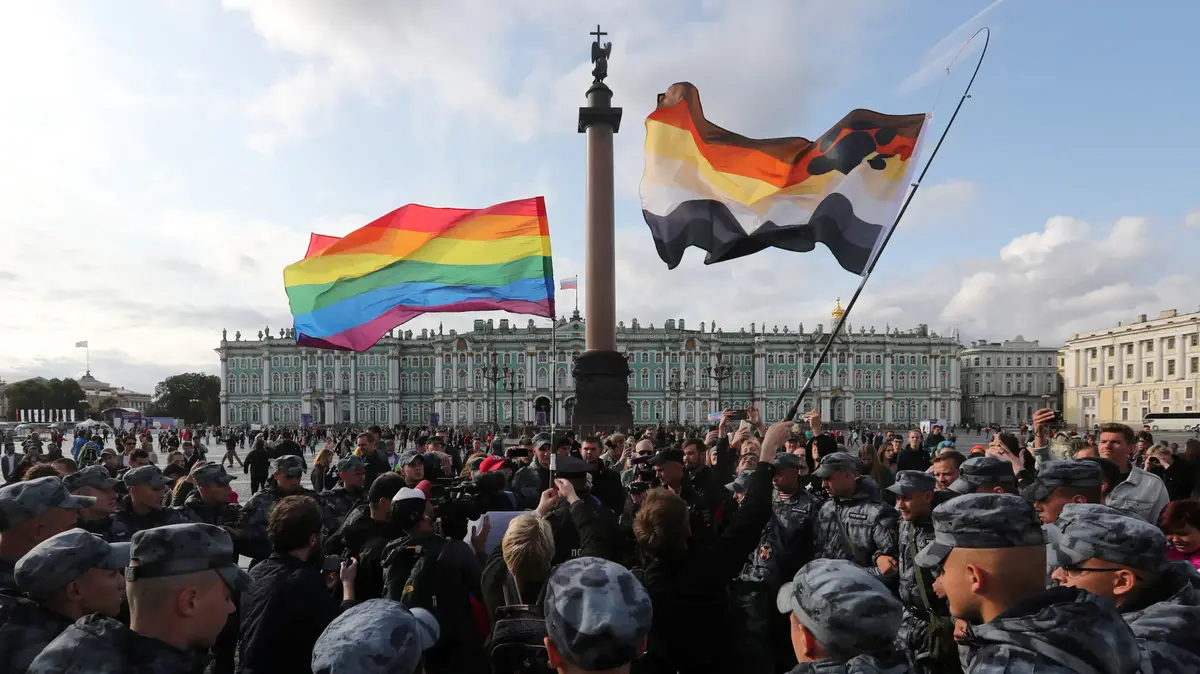This is how they celebrate LGBTQ pride month in Mexico City 1:19
(CNN) --
Have you ever wondered what the "Q" stands for in LGBTQ?
Or what do the other letters mean?
Just as language is constantly evolving, the words we use to describe ourselves and other facets of identity are also changing.
Here are some terms you should be familiar with, based on resources from the American Psychological Association;
NLGJA: The Association of LGBTQ Journalists and the National Center for Transgender Equality.
The countries in which unions between same-sex couples are legal
LGBTQ
The first four letters of this standard abbreviation are pretty straightforward: "Lesbian, gay, bisexual, and transgender."
The Q stands for "queer."
Pride: Why is June LGBTQ Pride Month? What is its origin and how is it celebrated?
queer
Once considered a humiliating insult for being gay, "queer" is being reclaimed by some as a blanket term of self-affirmation, especially among those who find other labels restrictive.
Some still believe it's a homophobic slur, so it's always best to ask or wait for the person you're talking to to use it.
SEX
The scientific community considers that sex is different from gender.
Sex is assigned at birth based on the physical and biological characteristics of a newborn, such as chromosomes, prevalence of hormones, and anatomy.
In general, the sex of a newborn is assigned as male or female, although some states and countries offer a third option for those who are intersex.
INTERSEXUAL
People who are born with sex chromosomes, external genitalia, or an internal reproductive system that is not considered standard for males or females.
Parents and doctors usually choose the sex of the child, which then leads to surgeries or hormone treatments.
Some intersex adults want this practice to end because one's sex at birth may not be aligned with their own sense of gender or identity.
advertising
GENDER
The socially constructed roles, behaviors, and attributes that serve as cultural indicators of someone's personal and social identity.
Typically, these roles fall into one of two categories: male or female.
This is beginning to change, as society becomes more comfortable with the idea of gender as a spectrum rather than a binary.
GENDER IDENTITY
A person's emotional and psychological sense of their gender, which may not match the sex assigned to them at birth.
The most common examples of gender identity are male and female, but there are several terms for people who don't fit into those categories, such as the following...
NON-BINARY
One of the most common terms to describe people who do not identify as male or female.
Some may have a gender that combines masculine and feminine elements, or they may not identify with either gender.
Common synonyms or alternatives to non-binary terms include genderqueer and gender non-conforming.
TRANSGENDER
Unlike non-binary people, transgender people can identify as male or female.
What the two groups share is an innate sense that their gender identity does not match the sex they were assigned at birth.
He gave birth to his son and breastfed him: now he wants his boy to see him as a man
CISGENDER
The prefix "cis" means "on this side."
Adding it to the "gender" suffix creates a word for someone whose gender identity aligns with the sex they were assigned at birth.
In other words, someone who does not identify as transgender.
SEXUAL ORIENTATION
One's innate sexual attraction to other men, women, or others who identify as non-binary.
Not to be confused with gender, sex, or gender identity.
LESBIAN
A noun and adjective for women who are attracted to other women, although some women prefer to be called gay or queer.
It is always better to ask!
gay
An adjective and a noun, most often used to describe men who are attracted to other men (except as noted above).
I was married with two kids when I found out I'm gay.
BISEXUAL
Someone who is attracted to more than one gender.
ASEXUAL
Asexuality is a sexual orientation characterized by a lack of sexual attraction, but it does not rule out romantic attraction.
PANSEXUAL
The prefix "pan" says it all.
Pansexual is an adjective for those who are attracted to all kinds of people, regardless of their gender or sexual orientation.
LGBTLGBT community







/cloudfront-eu-central-1.images.arcpublishing.com/prisa/JTG22L25ABCPDGDUBYM7MLFUYE.jpg)

/cloudfront-eu-central-1.images.arcpublishing.com/prisa/VB2FZXRBEFBPNAN5IFP75J6YOM.jpg)





